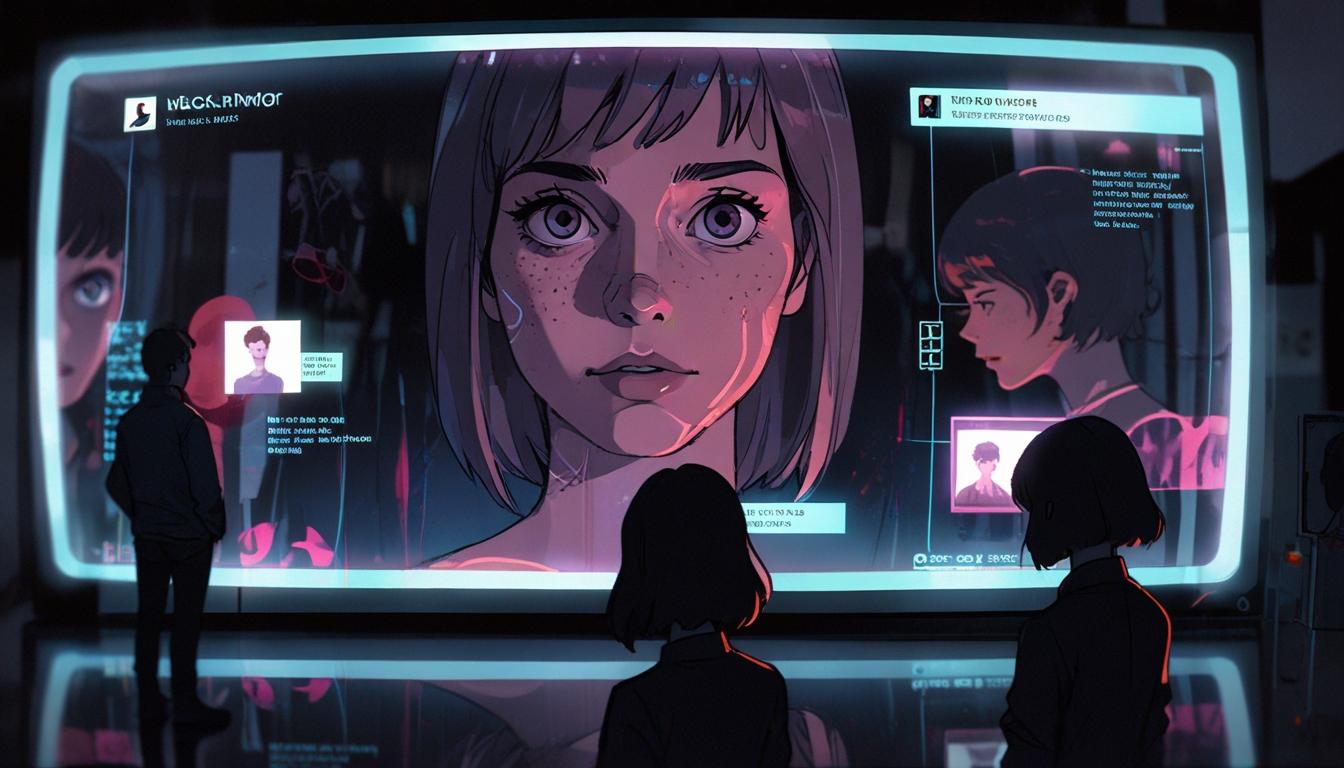The highly anticipated seventh season of Black Mirror, featuring a star-studded cast and several intriguing episodes, will be released on April 10.
Fans of the acclaimed anthology series Black Mirror are eagerly anticipating the release of its seventh season, which is set to premiere on Netflix on April 10. The upcoming season consists of six fresh episodes and boasts a star-studded cast, featuring notable actors such as Dame Harriet Walter, Peter Capaldi, Paul Giamatti, Issa Rae, Emma Corrin, Rashida Jones, and Awkwafina.
As the series continues to evolve, viewers can expect to see Easter eggs sprinkled throughout the new season, including a much-anticipated sequel to the 2017 episode USS Callister, titled USS Callister: Into Infinity. This episode will pay homage to the science fiction genre and will resume the narrative that concluded in the previous season. In addition, another episode called Plaything will explore interactivity by tying back to the choose-your-own-adventure format of the interactive film Bandersnatch, bringing back actors Will Poulter and Asim Chaudhry for this intriguing storyline.
Black Mirror’s distinct approach has captivated audiences since its original launch on Channel 4 in 2011, beginning with the controversial episode The National Anthem, where a fictional prime minister faces blackmail involving a pig in a live broadcast. The show initially aired for two seasons, complemented by a Christmas special, before transitioning to Netflix in 2016—an move that expanded the series’ reach and audience significantly. The switch to Netflix also resulted in an increase in the number of episodes per season, from three to six.
The series has not only been well-received by viewers but has also garnered critical acclaim, including multiple Primetime Emmy Awards and BAFTA Film nominations. In its run, Black Mirror has managed to capture diverse narratives that blend genres of romance, tragedy, and unsettling themes, consistently pushing boundaries and exploring complex contemporary issues in its storylines.
The shift from Channel 4 to Netflix has been addressed by executive producers Charlie Brooker and Annabel Jones in their companion book, Inside Black Mirror. They recounted that in December 2014, Channel 4 showed interest in producing more content, but the high production costs of the anthology series led the network to suggest co-productions would be necessary for future projects. They faced challenges in securing deals, and the announcement of Channel 4’s plans for a new sci-fi anthology series, Electric Dreams, featuring Bryan Cranston, added to the tension.
Brooker expressed his disbelief at the network’s decision, reflecting on the emotional weight of the conversation. He and Jones both felt distraught at the possibility of Black Mirror being cancelled just before a major press meeting. Yet, their fortunes took a dramatic turn when the first two seasons of Black Mirror were released on Netflix in the United States, leading to a surge in popularity. This newfound success prompted a bidding war among networks, eventually culminating in a lucrative deal with Netflix, which offered to produce two more seasons with 10 episodes each.
Jones noted that while it may appear from the outside that the transition was purely financial, the decision was also rooted in the creative potential that the partnership with Netflix offered. She acknowledged the role that Channel 4 played in the show’s existence, stating, “if it wasn’t for Jay Hunt and Channel 4, Black Mirror would never have existed.”
As the release of season seven approaches, viewers sit poised to discover what new narratives and themes the series will explore, as Black Mirror continues to cement its reputation as a pioneering force in contemporary television.
Source: Noah Wire Services
- https://people.com/black-mirror-season-7-release-date-cast-plot-news-11696966 – This article confirms that Season 7 of Black Mirror will be released on Netflix on April 10, 2025, and features six new episodes with a prominent cast, including Issa Rae, Awkwafina, and Paul Giamatti.
- https://www.imdb.com/news/ni64835429/ – IMDb news provides details about the cast of Black Mirror Season 7, highlighting actors like Awkwafina, Peter Capaldi, and Emma Corrin, with some returning characters for episodes like USS Callister.
- https://www.radiotimes.com/tv/sci-fi/black-mirror-season-7-netflix-cast/ – This article from Radio Times expands on the cast and storyline of Black Mirror Season 7, including information about episodes connecting back to USS Callister and Bandersnatch.
- https://people.com/black-mirror-season-7-release-date-cast-plot-news-11696966 – The article discusses the evolution of Black Mirror and its transition from Channel 4 to Netflix, which expanded its reach and episode count per season.
- https://www.britannica.com/topic/Black-Mirror – Britannica provides a history of Black Mirror, including its beginnings on Channel 4 with episodes like The National Anthem, and its critical acclaim for blending genres.
Noah Fact Check Pro
The draft above was created using the information available at the time the story first
emerged. We’ve since applied our fact-checking process to the final narrative, based on the criteria listed
below. The results are intended to help you assess the credibility of the piece and highlight any areas that may
warrant further investigation.
Freshness check
Score:
9
Notes:
The article discusses the upcoming seventh season of Black Mirror, set to premiere on April 10, indicating it is current and likely not reused from older pieces.
Quotes check
Score:
8
Notes:
No direct quotes from recent statements were found online, suggesting they may be original or based on internal information not yet publicly available.
Source reliability
Score:
9
Notes:
The narrative originates from a reputable publication, get Surrey, known for local and entertainment news, indicating a good level of reliability.
Plausability check
Score:
9
Notes:
Claims about the upcoming season, including its premiere date and cast, are plausible and consistent with what would be expected for a new season of a popular series.
Overall assessment
Verdict (FAIL, OPEN, PASS): PASS
Confidence (LOW, MEDIUM, HIGH): HIGH
Summary:
The narrative appears to be current, with information consistent with what is expected for a new season of Black Mirror. The reliability of the originating publication supports the overall validity of the content.













